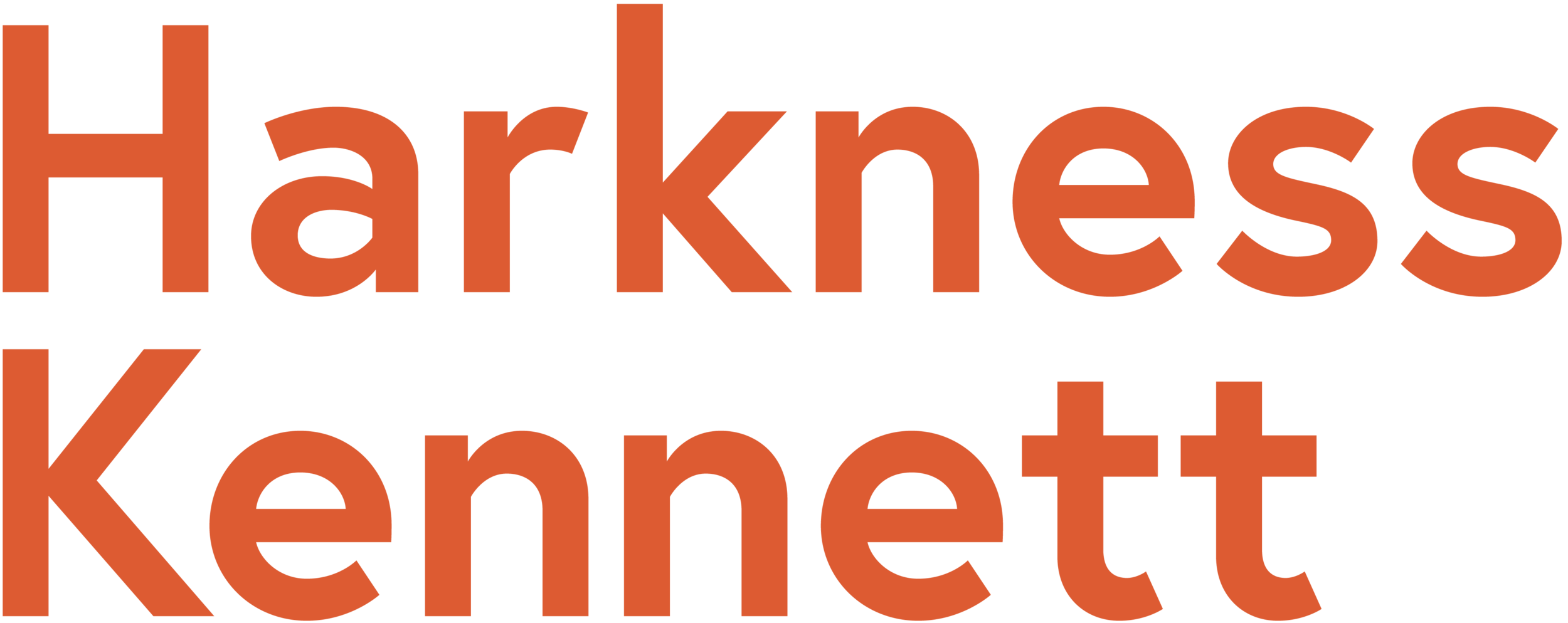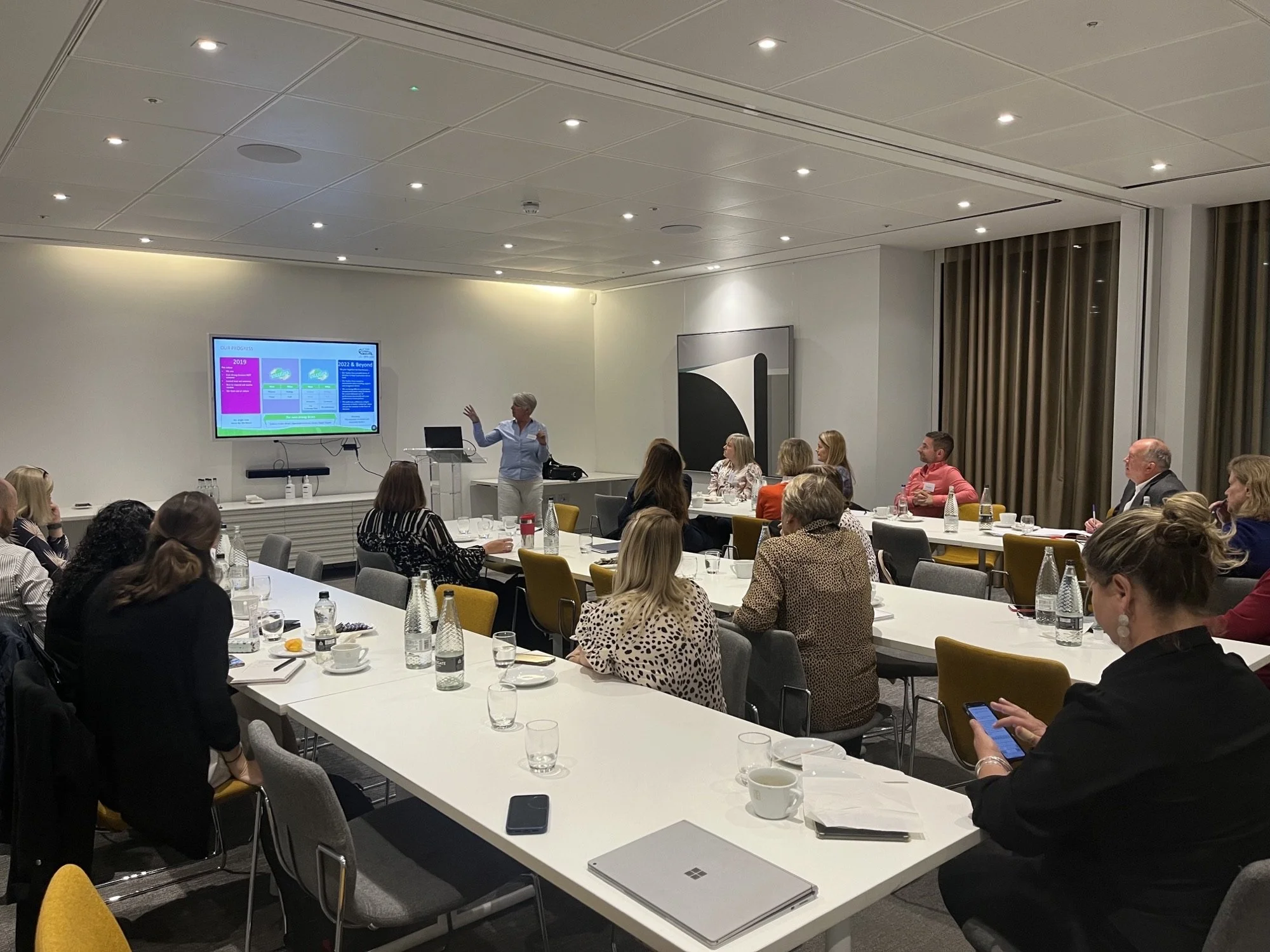Transformational change: the communicators’ guide
We’re always delighted at how well these networking breakfast sessions go – and today’s was no exception. With an evergreen topic like change communications it was no surprise that it was a packed room.
We were delighted that today’s presenters were able to take the time out of their busy schedules to share their experiences and change communications models. Helen Baldwin, who is just completing an interim placement at BP as their Change Communications Lead for the HR Transformation project, together with Sarah Purdie, Change and Communications Lead at Nuffield Health, lead the discussion and talked us through their approaches to communicating change.
With many change programmes under her belt, Helen has had plenty of time to perfect her communications approach. There are all kinds of change programmes, everything from systems to culture, growth to redundancies, transformation to business continuity to name but a few. Having observed the way the ‘recipients’ of change have responded over the years, Helen has sought to identify what causes negative responses, and how to create the best change outcomes for employees and organisations alike. Helen acknowledges that a large part of the communicator’s role is to change project speak into audience centric communication – putting people at the heart of communications. She has identified 8 key questions that provide the building blocks of an effective change communications plan:
What are we doing and why?
How will we work in the future?
What does this mean for me?
What do I need to know to do my job?
What technology will I need and how will I learn?
How do I set myself and my team up for success?
How do I continue to develop my skills and myself?
How am I supported through the change?
Timing is critical in terms of getting change communications right, so understanding the answers to these questions is just as important as determining when colleagues need to hear about them. Helen uses the four campaign stages of a change programme:
Getting aware
Getting ready
Getting started (go live)
Getting steady (Business as usual)
Helen uses this simple model as a framework for even the most complicated change programmes – helping her to see what is coming up and prepare in time, helping colleagues through their own personal change journey. Of course, Helen acknowledges, this is just the frame! There is still all the hard work of adding layers/details to messages, and crafting communications to suit the channels available – and all importantly encouraging leaders to get out there and talk to staff.
You can also use the framework to define the desired outcomes, which in turn supports measurement – either against the 8 questions or the 4 campaign stages. For Helen, enhancing the reputation of leaders and line managers as the ‘leaders of change’ is critical, alongside engagement in the change. Rather than over using surveys, she builds in skills development for leaders to support active listening and engagement opportunities, and helps build their confidence to answer the difficult questions.
Sarah is currently leading change for a business critical project at Nuffield Health as they roll out electronic health record implementation across their 31 hospitals. This change will impact the day to day work of 1,500 nurses and 5,400 consultants together with their supporting administrative teams.
Moving from a paper notes system to an electronic system will have significant benefits to the organisation in terms of efficiency, cost saving and improvements to patient care – but we all know that this scale of change comes with a degree of pain. Huge elements of the day to day work of colleagues are affected: changing behaviours that have been in place for decades, processes which can vary from person to person – or hospital to hospital, and implementing new technology. All of these things take their strain on individuals and the hospitals as a whole during the transition, and it is the job of the change team to ensure it goes as smoothly as possible for all their staff whilst continuing to provide excellent patient care.
In order to effectively manage this degree of change, Sarah has built a change model based on Lippett’s ‘Managing Complex Change Model’. It looks at the key elements of vision, incentives, resources, skills and action planning, and maps against it the consequences of not getting these right, which are (in turn): confusion, resistance, frustration, anxiety and false starts. She then uses a 3 phase change management approach:
Phase 1, Preparing for Change: involves identifying and preparing the Change Lead for the hospital, as well as preparing and coaching Leaders and Champions, and developing a hospital change plan.
Phase 2, Managing Change: conducting an impact analysis by talking and listening to staff, using Champions to support change, developing action plans for all, providing training and assessing readiness. At the point of go live, Nuffield provide a period of ‘hypercare’ where they flood the hospital with 40-50 extra staff to ensure staff feel supported and that issues can be resolved.
Phase 3, Embedding Change: ensuring Hospital Leadership and Champions are equipped and supported to maintain the changes, identifying any gaps and developing corrective actions, as well as putting in place longer term support systems.
Underpinning all 3 phases of the change plan are effective communications. As they roll out to each hospital, they find new issues and opportunities to reassess their plans, tweaking as they go along.
As ever, the post presentation conversations provided as much food for thought as the presentations themselves. In a nutshell, this is what we covered:
Try not to create new channels to deliver change. Identify the channels with the best reach and most credibility; enable leaders to own the change; break through the permafrost – use line managers all the way through the organisation to support the change with their teams – don’t rely on cascade – reach out to them directly (use HR data ie everyone with more than 5 direct reports)
Provide team leaders with an overview of the changes, linked to your 8 questions, give them the detail and a script to use together with questions to ask to get feedback, and provide activities to involve colleagues (gamification)
Change Champions – you need to identify your key influencers – not just those who always volunteer. If there is time – really try and find out who are the local influencers, and involve them.
Managing stakeholder expectations: sometimes this is easier than others! You need to encourage your project teams to look at change from the audience perspective and not from the project perspective. Don’t be afraid to get them to consider the impact of their preferred approach, and to then work backwards from what they would like the outcomes to be. Reflect upon whether the project is set up for success – and discuss this with the project team. Communication cannot fix everything – so you’ll need to use your influence at a leadership level to focus on the critical issues. Make leaders aware of potential impact/outcomes.
The power of credible leadership: authentic leaders who are able to listen and talk to employees, are not afraid to engage in ‘difficult’ conversations and undertake to come back to unresolved issues will transform the impact of your change programme.
Be wary of social media. It may have an excellent reach – but does it devalue the credibility of other change communications? If you use it, be sure it doesn’t feel like ‘rumour’, trigger confusion or divert the audience from more detailed communications.
If you’ve not been to one of these sessions before do try and come along – as we think they’re truly refreshing! Not only do you get to hear not just one but two tip filled mini presentations, you also get the opportunity to hear from your peers in our extended Q&A/discussion session – and get plenty of opportunity to join in too. We keep these sessions deliberately small and intimate, and short but action packed. We’re all done by 10am – so plenty of time to still get a days’ work done too!
If you’d like to join our email distribution list about future events drop me a line at: nicola.gallagher@harknesskennett.com
Published by Nicky






























